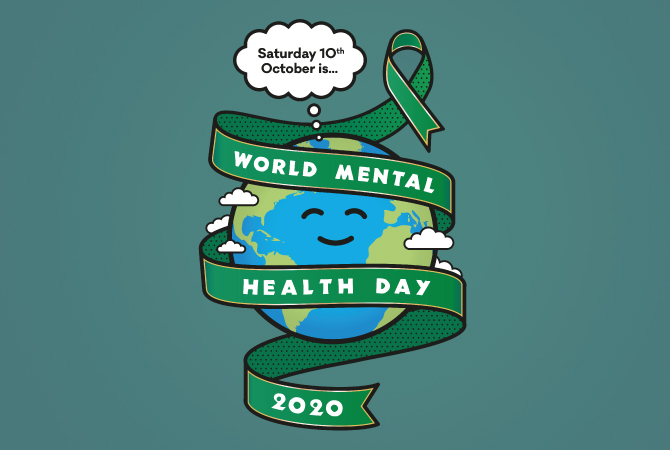Welcome to World Mental Health Day. In these challenging times, it’s even more important that we support and help each other. The theme for this year is ‘mental health in an unequal world.’ This was chosen by World Health Organisation to shine the spotlight on how access to healthcare is increasingly polarised. During 2020 many inequalities have been highlighted linked to race, ethnic groups, gender and sexual orientation, where we live in the world and for us, where we live in the UK.
The statistics about access to health services show that inequality is a real issue and the pandemic has exposed this further. Covid-19 has shown us the impact of physical health issues on mental health and what happens when we aren’t able to access support for our emotional wellbeing.
Sadly between 75% and 95% of people with mental health problems in low and middle income countries are unable to access any help. Even in a higher income country like the UK, accessibility to support is patchy depending on where you live and who you are. The investment in mental health compared to physical health funding is disproportionate and contributes to the gap in treatment.
Facts in the UK
In 2020, 1 in 6 young people had a mental health problem compared to 1 in 10 in 2019. Black people are 4 times more likely than white people to be detained under Mental Health Act. People in the lowest income bracket in the UK are twice as likely to develop a mental health issue than those on an average income.
What does inequality mean to you?
If you work, attend school or college, you may experience less support or adjustments if your difficulty is related to mental health. You may worry that you could be viewed as weak, stupid, lazy for having a psychological difficulty that impacts on how you function day to day. The fear of stigma has a powerful impact on how likely we are to seek help and support. For example, say your child is at school and suffers from anxiety doing certain activities. The fact that their difficulties are not physically obvious such as a broken leg may mean that your child/you may be less likely to raise the problem. If you do raise it, sadly there is an increased likelihood that the response could be less helpful than if it was a physical problem. This can lead to mental health difficulties becoming more chronic and entrenched as we continue struggling.
The discrimination that people with mental ill health may experience can also impact on their educational, current and future job opportunities, overall physical health and how they contribute to society. The ripple effect of this on families and communities is huge. People with physical illness often also suffer with poor mental health. For example, over 2.2 billion people worldwide have visual impairment and the vast majority also experience depression and anxiety.
Breaking down stigma
Speaking up on behalf of ourselves and others is key to tackling misconceptions and stigma. When we are feeling low, with self-doubt and lacking in confidence it is hard to speak up. So may be we need the help of a supporter to do this. Do you have a close friend, family member, a mental health first aider at work, or staff with a special interest in mental health, pastoral care at school or college? Access anyone who is openly interested in psychological wellbeing.
Treating ourselves with equality
We are all different – some can bounce back from adversities, while others really struggle. It doesn’t mean that one person is stronger than the other it simply means that we have different ways of managing and cushioning ourselves against poor mental health.
Many of us have a common misconception that we need to focus our energy on making sure others are ok before ourselves. So in effect we don’t treat ourselves and our welfare equally. That pattern can lead to emotional burn-out, mental health difficulties or physical health problems. Let’s set an example this week and focus on treating ourselves equally and with the care we offer other people.
Ask yourself what can I do over this week to take care for me and show others that I value myself as well as them. It may be something simple like sitting and having a coffee, taking 30 minutes out in the day to do our own thing, planning a future event that we’ve wanted to do for ages but never organised. Do it just for you.
Top tip – treat yourself as you if you were your best friend
On this special day that highlights mental health across the world, we would like to encourage all of you struggling to seek support in whatever way works for you – that can be joining a new group, starting a hobby, doing an exercise class. If anyone is contemplating talking therapy then please contact us and arrange a telephone consultation about your needs.
We have a helpful section on our website about different types of therapies and lots of self-help information Frequently Asked Questions – The Wellness Consultancy.
https://thewellnessconsultancy.org
Rachel Wesley
Helpful links
WMHD 2021 resources | Mind, the mental health charity – help for mental health problems
The science of self-compassion (bupa.co.uk)
https://www.mentalhealth.org.uk/
Why you should embrace the self-love revolution (happiful.com)

